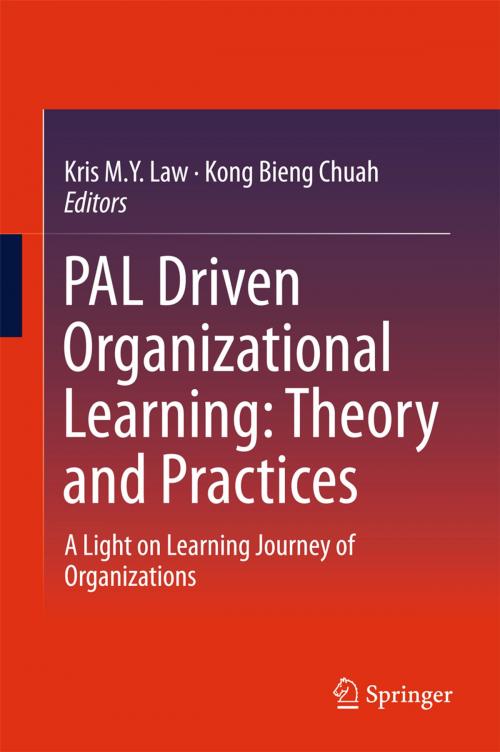PAL Driven Organizational Learning: Theory and Practices
A Light on Learning Journey of Organizations
Business & Finance, Management & Leadership, Planning & Forecasting, Nonfiction, Social & Cultural Studies, Social Science, Sociology, Science & Nature, Technology| Author: | ISBN: | 9783319180144 | |
| Publisher: | Springer International Publishing | Publication: | June 3, 2015 |
| Imprint: | Springer | Language: | English |
| Author: | |
| ISBN: | 9783319180144 |
| Publisher: | Springer International Publishing |
| Publication: | June 3, 2015 |
| Imprint: | Springer |
| Language: | English |
Presenting an innovative concept and approach for organization management, this book serves to document an organization’s journey towards the ultimate goal of learning organization. This book also shares the experience on how a OL framework built on established learning theories, could be used effectively, overcoming many of the barriers in a real industrial setting. Utilizing a ready-to-use tool called Project Action Learning (PAL) to analyze real life case studies, the authors introduce a framework that allows teams of people to work and learn over the course of business projects. Equal emphasis is placed on the achievement of pre-set project outcomes and the learning objectives of the participants. In addition, a long term organizational learning strategy is put forward and the necessary supporting infrastructure, in the form of four ‘PAL Pillars’, is described. The concepts and development of the PAL driven Organizational Learning model are inspired by and grounded in, Western and Eastern business philosophies and case studies which offer important insights into the management of organizations who are keen to develop sustainable business practices.
Presenting an innovative concept and approach for organization management, this book serves to document an organization’s journey towards the ultimate goal of learning organization. This book also shares the experience on how a OL framework built on established learning theories, could be used effectively, overcoming many of the barriers in a real industrial setting. Utilizing a ready-to-use tool called Project Action Learning (PAL) to analyze real life case studies, the authors introduce a framework that allows teams of people to work and learn over the course of business projects. Equal emphasis is placed on the achievement of pre-set project outcomes and the learning objectives of the participants. In addition, a long term organizational learning strategy is put forward and the necessary supporting infrastructure, in the form of four ‘PAL Pillars’, is described. The concepts and development of the PAL driven Organizational Learning model are inspired by and grounded in, Western and Eastern business philosophies and case studies which offer important insights into the management of organizations who are keen to develop sustainable business practices.















